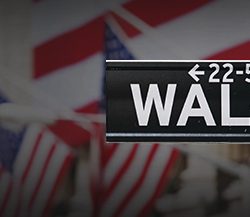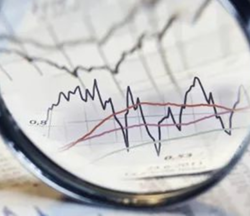There are some immunologists that think spacing that booster out longer might help generate longtime immunity, Pekosz said. Verywell Health's content is for informational and educational purposes only. Similarly, after your immune system gets primed by a SARS-CoV-2 infection, your immune system may take a little bit of time to fully prepare itself to protect against a future exposure to the virus. Dionne says he doesnt have any concerns about the safety of the updated boosters because they are built on a platform established by the original vaccines, which underwent lengthy testing. According to the CDC, people who already had COVID-19 and do not get vaccinated after their recovery are more likely to get COVID-19 again than those who get vaccinated after their recovery. The official guidance from the Centers for Disease Control and Prevention (CDC) is to delay your booster by three months from when your symptoms started or, if you had no symptoms, when you received a positive test. Well, going to get vaccinated while you are still spewing out the severe acute respiratory syndrome coronavirus 2 (SARS-CoV-2) would not be cool. The. Save up to 70% off the cover price when you subscribe to Discover magazine. Accessibility Issues. A recent study from George Mason University details how vaccine mandates in nine major US cities had no impact on vaccination rates. This might be because of their age or a health condition. Getting a Covid-19 vaccine after having recovered from Covid-19 can offer you extra protection against Covid-19. But then I spent so many nights thinking how you did me wrong. Health's content is for informational and educational purposes only. Compared to those unvaccinated who had not had COVID, people who were vaccinated had a significantly lower risk of developing symptomatic COVID-19 both pre-Omicron variant and during the Omicron variant phase, which is currently the dominant coronavirus variant, researchers reported. But when is the best time to get a booster if you have had the virus or been fully vaccinated? What is the Doomsday Clock and Why Should You Care? Boosters reduced hospitalizations in older, high-risk Americans. That's because guidance from the Centers for Disease Control and . . "So this updated vaccine - kind of like at the beginning those first vaccines were highly protective, we weren't seeing a lot of breakthrough now again, while it is a good match, I would expect there to be significantly more protection against infection as well.". In the Clinical Infectious Disease report, researchers found that people who have had COVID-19 are more protected than people who have been vaccinated but have not previously had COVID-19. According to the CDC, after a COVID-19 infection, you can get a booster if: Your symptoms have resolved. Moreover, if you were hospitalized and treated with monoclonal antibodies or convalescent plasma, you cant get a booster shot right away. The question is, how long does that immunity last? Stephanie Hartselle, MD, is a psychiatrist with a private practice in child, adolescent, and adult psychotherapy and psychopharmacology. If all the energy used by public health officials to mask toddlers could have been channeled to reduce child obesity by encouraging outdoor activities, we would be better off. Its not going to hurt anyone to get the booster too soon, says Brandon Dionne, associate clinical professor at Northeasterns School of Pharmacy. If you catch COVID-19 before your booster, however, you should wait until you feel better and symptoms have resolved before getting it, Dr. Jorge Luis Salinas, an assistant professor of medicine . They contain half that original vaccine recipe and half protection against the newest omicron versions, called BA.4 and BA.5, that are considered the most contagious yet. It looks as though people will benefit from being boosted approximately every six months, in the absence of a naturally occurring COVID infection, Amiji says. If you didn't have symptoms, you can wait 3-6 months from the time you tested positive. When you give your body ample time to drum up its immune response to an infection and then slow down, the booster can jump-start that immune response again, he noted. Marty Makary MD, MPH is a professor at the Johns Hopkins University School of Medicine and author of The Price We Pay.. If you recently had COVID-19, you can get your second booster as soon as you are no longer infectious10 days after symptom onset or 10 days after the day you tested positive, whichever comes first. New COVID Booster Labels Look Similar to Old OnesHere's How To Make Sure You're Getting the Right Shot. These new bivalent vaccines are designed to offer extra protection against the omicron variants, which are now the dominant strain of the virus," Illinois Department of Public Health Director Dr. Sameer Vohra said in a statement. A Northeastern grad and entrepreneur thinks so, Is Temu legit? If you are able to tolerate a little bit of risk, I dont see a downside to waiting a year if youve had COVID and youve recovered. Even if you were previously infected, experts recommend getting a booster shot to maximize your protection against the virus. The best way to maximize your protectioneven after getting COVID-19is to get your booster shot once you are eligible. For most people, that's about 10 days after testing positive or 10 days after first noticing symptoms. But while those who have not had a recent COVID infection can get their shot now, the timeline guidance differs for those who recently had a COVID infection. We now know that myocarditis is six to 28 times more common after the COVID vaccine than after the infection among 16- to 24-year-old males. Centers for Disease Control and Prevention. The CDC recommends fully vaccinated individuals who are not boosted but test positive for COVID-19 get their booster shot 'after recovering from a breakthrough . What held true in the past may not necessarily hold true in the future, says the studys lead author, Nabin K. Shrestha, infectious disease physician with the Cleveland Clinic. Adults 18 and older who got Moderna can get boosted . So, after COVID, you could consider getting your booster 3-6 months later. People with COVID-19both symptomatic and asymptomatic individualsshould wait until after they have recovered from their illness and have met the criteria for discontinuing isolation before getting vaccinated with the booster dose, William Moss, MD, executive director of the International Vaccine Access Center at the Johns Hopkins Bloomberg School of Public Health, told Verywell. Researchers from the Imperial College London COVID-19 Response Team found that Omicron was associated with more than a 5-fold higher risk of reinfection compared to Delta, which suggests that previous COVID-19 infection might not be enough to protect you. Experts say individuals recently vaccinated against or infected with COVID-19 should hold off for a few weeks before getting the newly approved, updated booster shot that targets the Omicron variant. But other studies have found that unvaccinated people with prior infection were over 5 times more likely to test positive for COVID-19 than vaccinated people. But I have had 2 JandJs, and a mild case of covid a year ago. If you just tested positive for COVID-19 but haven't been boosted yet, should you run to your local pharmacy and get a booster shot once you're well? Having had Covid-19 wont give you 100% protection. Just like the flu vaccine thats intended to prevent hospitalization and death, the coronavirus vaccine is designed to prevent people from dying or needing to be hospitalized. Getting boosters too soon diminishes peoples long-term immunity, says Monica Gandhi, an infectious disease physician and professor of medicine at San Francisco General Hospital. If you have recently had Covid symptoms, the NHS says you should ideally wait: Four weeks (28 days) if you're aged over 18 12 weeks (84 days) if you or your child are aged five to 17 Four. Quarantine and isolation. New Covid Boosters Were Released Before Human TestingBut Experts Say They're Still Safe, Omicron Infection Timeline: When Symptoms Start and How Long They Last, New Omicron Booster Side Effects: What to Expect From the Bivalent Vaccines. People at high risk of severe COVID-19 illness are strongly recommended to get their booster at a three-month interval, to provide optimal protection during respiratory illness season. If you have COVID-19, you can get the booster shot after your isolation period is over, as long as you meet all the criteria for ending isolation. Altarawneh HN, Chemaitelly H, Ayoub HH, et al. With enough time, our bodys defenses against. But a UK study found that only 3% of COVID patients had residual symptoms lasting 12 weeks. By entering your email and clicking Sign Up, you're agreeing to let us send you customized marketing messages about us and our advertising partners. Frequently asked questions about COVID-19 vaccination. This is why it's recommended that you still get vaccinated if you've had COVID and recovered. Don Lemon proves she will. Look, it doesnt help.. The Centers for Disease Control and Prevention (CDC) is saying that before getting your Covid-19 vaccine or vaccine booster you should consider waiting for three months after you first noticed Covid-19 symptoms or first had a positive Covid-19 test. The Food and Drug Administration sees a possible risk of Guillain-Barre syndrome with Pfizer 's RSV vaccine for older adults and has asked the company to conduct a safety study if the shot is . Even if you had COVID-19 before, booster shots are still recommended because natural immunity isn't always reliable. They demanded that soldiers be dishonorably discharged and nurses be laid off in the middle of a staffing crisis. Things keep changing., Scientists Have Made Cocaine From a Tobacco Plant. Ive always been skeptical about the effectiveness of variant-oriented vaccines, Amiji says, noting that by winter another variant may emerge. Its okay for people to get boosted with Moderna if theyve been vaccinated and boosted with Pfizer, and vice versa, or to get the updated booster from Moderna or Pfizer if theyve had the Johnson & Johnson single shot or booster in the past, says Amiji, who noting that the Moderna and Pfizer mRNA shots have proven more effective. That's because we develop antibodies to help fight off the virus, according to Dr. Bauer. This is in part due to isolation guidelines from the CDC. "We just don't have any data on this [yet], essentially giving two vaccines in one shot but biologically, I just wouldn't expect the side effects, severity or the safety profile of the shots to be different from the current mRNA vaccines and boosters," Dr. Paul Offit, director of the Vaccine Education Center at Children's Hospital of Philadelphia and member of an independent advisory group to the U.S. Food and Drug Administration, told CNBC's Make It. After all, universities and employers across the country can require proof of boosters before allowing you to return to campus or the office. And one published last month by a highly respected Oxford research team found that masks had no significant impact on COVID transmission. It's important to keep up to date on vaccines and boosters for the best protection. "In effect, you are getting a booster at that point by natural immunity.". Here's what to know if you just had the virus: You should wait at least two months to get your shot. Karen is a senior editor at Health, where she produces health condition explainers backed by current science. However, studies started to weigh in. Cookies collect information about your preferences and your devices and are used to make the site work as you expect it to, to understand how you interact with the site, and to show advertisements that are targeted to your interests. Anyone who has received a primary COVID vaccine is eligible two months from their last dose of either the original vaccines or the previous booster shots. This is why you may want to wait for a while after a bad breakup before dating again and why you may want to wait for a few months before getting the Covid-19 vaccine or booster vaccine. As of yesterday, everyone in the country is eligible for a booster three months after their second dose of a vaccine. However, those who had had a SARS-CoV-2 infection within the 180 days prior to their getting the third dose of the vaccine had comparatively lower spike-specific B-cell responses at the two-month mark after vaccination. "You should wait at. According to documents obtained by Bret Baier of Fox News, they told Fauci and Collins that the virus may have been manipulated and originated in the lab, but then suddenly changed their tune in public comments days after meeting with the NIH officials. CDC officials say they expect to recommend updated COVID-19 boosters to an expanded age group of children soon. Donations reduce food waste, but also increase food prices, Fact checking Don Lemon: Women reach their prime later in life, Northeastern experts say. Inflation rate at 6.4%. This does not mean that the vaccine caused the positive test or did not work. stay out of the way in our memory banks lying dormant in lymph nodes, thymus and bone marrow until theyre needed to attack a virus. But you may choose to bring your booster dose forward if: you have underlying health conditions that place you at higher . People who already had COVID-19 and do not get vaccinated after their recovery aremore likely to get COVID-19 againthan those who get vaccinated after their recovery. Millions of Americans are eligible for the boosters approved Aug. 31 by the U.S. Food and Drug Administration. of keeping schools open, most without mask mandates. The study was conducted by a team from the National Institutes of Health (NIH) that included Clarisa M. Buckner, Lela Kardava, Omar El Merhebi, Sandeep R. Narpala, Leonid Serebryannyy, Bob C. Lin, Wei Wang, Xiaozhen Zhang, Felipe Lopes de Assis, Sophie E.M. Kelly, I-Ting Teng, Genevieve E. McCormack, Lauren H. Praiss, Catherine A. Seamon, M. Ali Rai, Heather Kalish, Peter D. Kwong, Michael A. Proschan, Adrian B. McDermott, Anthony S. Fauci, Tae-Wook Chun, and Susan Moir. Federal health officials are urging Americans to shore up their immunity ahead of the winter holidays by getting a COVID-19 booster shot. COVID-19 vaccine booster shots. Northeasterns partnership with a historically Black university in Charlotte aims to fix that. 2021;181(5):672679. This suggests that having had Covid-19 sometime during the prior half year could potentially inhibit the B-cell response that you may get from a Covid-19 mRNA vaccine or booster. Centers for Disease Control and Prevention. You may consider delaying your booster vaccine by 3 months from when your symptoms started or, if you had no symptoms, when you received a positive test. According to Arwady, people should wait 10 days after their positive test before getting their booster shot. People who test positive but never show symptoms can get their booster as soon as. Eligible individuals can safely get a booster after a Covid infection as soon as they are no longer contagious. Will COVID-19 Need an Annual Vaccine Like the Flu? Thats probably why the CDC chose not to publish its data on hospitalization rates among boosted Americans under 50, when it published the same rates for those over 50. What New Variants Of COVID-19 Are Currently Circulating? have had close contact (within 6 feet for a total of 15 minutes or more) with someone with confirmed COVID-19. Its a bivalent shot, meaning it targets both the original strain of the virus and the highly contagious omicron subvariants including BA.5, the current dominant strain in the United States. Here's how the CDC breaks out its booster guidance: To help you understand if and when you can get boosters based on your health, health status, and previous COVID-19 vaccine immunizations, the CDC has a COVID-19 booster tool you can use. Over the last few decades, she's written for the New York Post, CNN, Parade, WebMD, Millie, Reside, the Food Network, Delish, and Architectural Digest, always with the same mandate to be compassionate, hence the hashtag #compassionatejournalism that she includes in her email auto-signature. If you want specific guidance based on your personal health records, get in touch with your doctor. Young people benefit from a vaccine booster. The White House. Everyone aged 16 years and over who received their second dose of a COVID-19 vaccine at least 3 months ago should get a booster to stay up to date. The CDC recommends delaying boosters until three months after contracting the coronavirus. Dr. Francis Collins, head of the National Institutes of Health, claimed (and still does) he didnt believe the virus came from a lab. You are already protected, for a while, he says. In the past few weeks, a series of analyses published by highly respected researchers have exposed a truth about public health officials during COVID: To be clear, public health officials were not wrong for making recommendations based on what was known at the time. need time between what is called the prime the actual infection or a vaccine and a boost, Gandhi says. study published in July showed those who were unvaccinated who had not had coronavirus were at the highest risk for getting it. Yet multiple infectious disease doctors suggest waiting at least six months to a year after infection, depending on age, risk factors for serious illness and tolerance for illness. According to health experts, immunity after vaccination against COVID-19 decreases over time. Symptoms of COVID-19 often include a new or worsening cough and fever, as well as a sore throat and nasal congestion, said Evans. Say youve just recovered from having Covid-19. Its often normal to experience mild fatigue or weakness for weeks after being sick and inactive and not eating well. Whatever you do, getting vaccinated is the best way to protect yourself. Should You Test for COVID Before Your Omicron Booster? One of the reasons why hybrid immunity may be most protective could be related to variability in the immune response. If you know that you may be at higher risk for being exposed to the virus such as extensive socializing indoors or traveling, you may want to get up-to-date on your vaccinations beforehand. A June 2022 NEJM study found that protection against reinfection decreased with time among people previously infected with COVID-19 (regardless of whether they had received any dose of vaccine or whether they had received one dose before or after infection). Who can get a booster dose When COVID-19 booster doses are available, they will be offered to people who are at increased risk from COVID-19 following advice from the Joint Committee on Vaccination and Immunisation (JCVI). In the past month, more than 2 million Australians have tested positive for COVID-19, but the explosion in infections has coincided with the widening availability of booster shots. However, if you were severely ill, you may need to wait longer than the minimum of five days. Public health officials downplayed concerns about vaccine-induced myocarditis or inflammation of the heart muscle. There is no easy answer to this question, says Shrestha. How Long Does Immunity From Omicron Last? Data from earlier in the pandemic suggest that people are unlikely to get reinfected right away. By Laura Hegwer. She notes, however, that no vaccine is 100%. The new U.S. boosters are combination, or bivalent, shots. And now the U.S. seems primed for another late Fall and Winter surge, especially with so many people having ditched Covid-19 precautions like face mask wearing and social distancing as if they were soiled underwear. The tool can help you determine when or if you (or your child) can get one or more COVID-19 boosters. People aren't going to choose to get that updated booster and we will miss the opportunity on an individual level, but more importantly on the societal level to be in the best possible shape heading into winter. How long should you then wait for it, wait for it, wait to get your next Covid-19 vaccine whether its your first ever Covid-19 vaccine, your second dose, your booster, or your bivalent booster? The vaccine is now the primary shot that will be administered to those who are eligible and looking to get boosted throughout the country. If you came down with COVID-19 and recovered, you might think that you're immune against the virus. How Long Will Immunity Last With the New COVID Bivalent Booster? "I think one of the problems with natural infection is that the antibody responses that you're going to get, and the immune responses that you are left with after natural infection, can be variable," said Jonathan Li, MD, associate professor of medicine at Harvard Medical School and a member of the NIH COVID-19 Treatment Guidelines Panel. The UK recommends 28 days. More than 21,000 daily doses have been administered, on average, over the past week, which is twice the daily average throughout the majority of summer. "As long as you're eligible for the vaccine and booster, the guidance is the same," Dr. Chang said. In September 2022, White House COVID-19 response coordinator Dr. Ashish Jha confirmed that people who recently caught COVID-19 or were recently vaccinated could wait a few months to get a new Omicron booster. (Photo by Horacio Villalobos#Corbis/Corbis via Getty Images), The Centers for Disease Control and Prevention (CDC) is saying. Adults and some adolescents are eligible for booster doses. Sure you could wait for three months or more to get a Covid-19 vaccine or vaccine booster. So, after COVID, you could consider getting your booster 3-6 months later. Growth, population distribution and immune escape of Omicron in England. Read more at straitstimes.com. Vaccines are the best and safest way to strengthen your immunity, Pekosz said. Today, they are in denial of a mountain of strong studies showing that they were wrong. According to the Centers for Disease Control and Prevention (CDC), about 38.7% of fully vaccinated Americans have now gotten either their COVID-19 booster or third vaccine dose. doi:10.1136/bmj.n2101, Ferguson N, Ghani A, Cori A, et al. Are charitable food donations a double-edged sword? The limited data thats available suggests the booster may not prompt as strong an antibody response to the virus in a recently infected person. By Carla Delgado of thousands have transformed since the start of the pandemic in the U.S. is characterized by long-term neurological and respiratory symptoms, and is not as rare as you may think. Too Soon to Tell If Omicron Will Create More Long COVID. But if you've had a recent breakthrough case of coronavirus, some health experts suggest you might benefit from waiting to get a booster shot. People ages 12 years and older are recommended to receive one updated Pfizer or Moderna (bivalent) booster. ", The most common symptoms then included fatigue and pain at the injection site, but "most symptoms were mild to moderate.
Graydon Hoare Education,
Scott Boras Clients List 2021,
Best Puerto Rican Pitchers Of All Time,
Articles W












